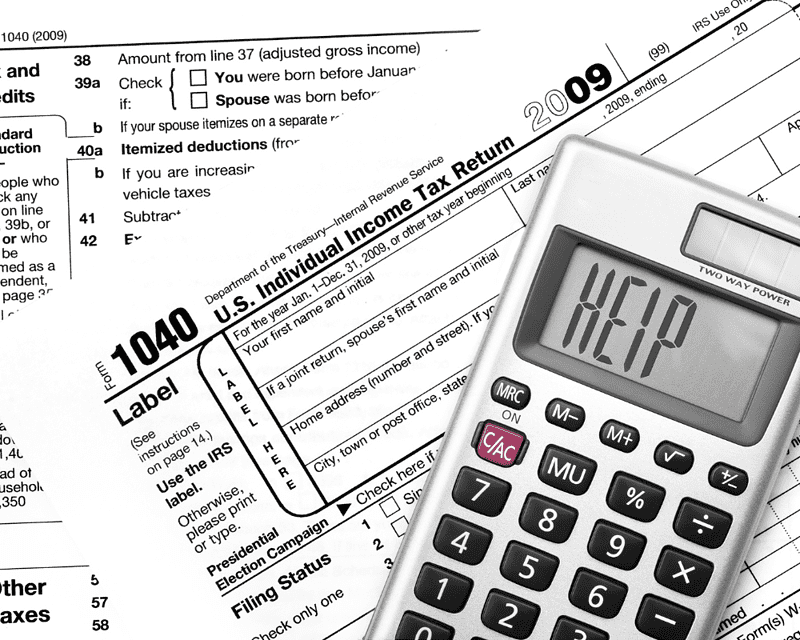Owing the IRS can be a scary and stressful situation for anyone, but owing over $100,000 in taxes can feel overwhelming. Whether due to incorrect filings or simply the inability to pay, owing this amount of money to the IRS comes with serious consequences.
This blog post will explore what happens when you owe the IRS over $100,000 and discuss options for dealing with tax debt. We’ll also provide tips on how to avoid finding yourself in this situation in the first place. By understanding the potential consequences and available options, individuals who owe back taxes can take action toward resolving their tax debt and avoiding further financial troubles.
Consequences Of Owing The IRS Over $100,000

If you owe the IRS over $100,000 in taxes, it’s important to understand the potential consequences of failing to pay. Here are some of the most significant outcomes you may face:
IRS Collection Actions:
When you owe the IRS over $100,000, they may take more aggressive collection actions than if you owe a smaller amount. Some of the collection actions the IRS may take include:
- Notice of Federal Tax Lien: The IRS can place a lien on your property as a way to secure their interest in your unpaid tax debt. This means that if you sell your property, the IRS will be entitled to receive payment from the sale proceeds before you do.
- Tax Levies: The IRS can also issue a levy against your bank account or other assets, seizing them to satisfy your tax debt.
- Wage Garnishments: The IRS can garnish your wages, meaning they will take a portion of each paycheck until your tax debt is paid off.
- Revoke or deny your passport application
Penalties And Interest:
Owing over $100,000 in taxes means that you will likely face substantial penalties and interest charges on top of your original tax bill. These fees can quickly add up and make it even more difficult to pay off your debt.
Potential Criminal Charges:
While this is rare, owing large amounts of money to the IRS could potentially result in criminal charges if it’s found that you have intentionally avoided paying taxes or engaged in fraudulent activity.
It’s important to note that ignoring your tax debt won’t make it go away; it will only worsen things. If you owe over $100,000 in taxes and are struggling to pay, seeking assistance from a qualified tax professional or attorney is highly recommended. They can help you explore options for resolving your debt and work with the IRS on your behalf to negotiate an affordable payment plan or settlement agreement.
Your Option To Resolve Taxes

To resolve the tax debt, your options depend on your financial situation. If you have a good income but are cash-strapped or have assets to liquidate or borrow against, paying off a portion of the debt in a lump sum can make some tax resolution options more feasible. The streamlined instalment agreement program is an option for balances up to $100,000 but typically requires balances below $50,000.
Penalty abatement and exploring all available options with a tax attorney are also recommended. Combining tax relief programs and making adjustments to your finances can help tackle IRS tax debt of over $100,000.
How To Avoid Owing The IRS Over $100,000 In Taxes?
The best way to avoid owing the IRS over $100,000 in taxes is to be proactive with your finances and stay organized. Make sure you file your tax returns on time each year and keep accurate records of all transactions. You should also take steps to minimize your tax liability by taking advantage of available deductions and credits.
If you’re self-employed, consider setting up an estimated tax payment plan so that you don’t end up owing the IRS a large sum at tax time. Finally, be sure to pay any taxes due when they are due – if you don’t, the IRS can start to pile on penalties and interest.
If you find yourself in a situation where you owe the IRS over $100,000, don’t ignore or avoid it. Reach out to a qualified tax professional or attorney and work with them to determine an affordable solution that works for your specific situation. This resource can empower you to manage your debt effectively and swiftly so that it is no longer a burden.
Ask For Help From A Tax Professional
If you owe $100,000 or more in tax debt to the IRS, seeking help from a qualified tax professional is even more crucial. You may qualify for one of several IRS fresh start programs. Here are some reasons why it may be best to leave it up to the professionals:
1. High Stakes: When dealing with such a large amount of debt, the stakes are much higher. The consequences of not properly resolving your tax debt can be severe, including wage garnishment or even seizure of assets.
2. More Complex Options: With such a large amount of debt, your options for resolving it become more complex and varied. A tax professional can help you navigate these options and determine which ones are most appropriate for your unique situation.
3. Greater Negotiation Power: If you owe $100,000 or more in tax debt, negotiating with the IRS on your own can be challenging. A tax professional has greater negotiation power and experience to potentially secure better terms for paying off your debt.
4. Legal Expertise: In some cases, owing $100,000 or more in tax debt may result in legal issues that require specialized expertise. A tax professional can provide legal guidance and representation if necessary.
5. Peace of Mind: Dealing with such a significant amount of debt to the IRS can be incredibly stressful and overwhelming. By enlisting the services of a qualified tax professional, you can have peace of mind knowing that someone is working on your behalf to resolve these issues.
Overall, if you owe $100,000 or more in tax debt to the IRS, seeking help from a qualified tax professional is essential. They have the knowledge and experience necessary to navigate complex options and negotiate on your behalf while providing legal guidance if needed. Don’t hesitate to reach out for assistance – it could make all the difference in resolving your tax debt once and for all.
Conclusion
Owing over $100,000 in tax debt to the IRS is a serious financial burden. However, with careful planning and the help of a qualified tax professional, it’s possible to find a resolution that works for your unique situation. Be sure to take advantage of available deductions and credits, pay taxes on time, and explore all available options for debt relief.
Having an experienced professional on your side can provide greater negotiation power and legal expertise to help you achieve the best outcome possible. Don’t wait – get started today on resolving your tax debt so that you can move forward with peace of mind.
